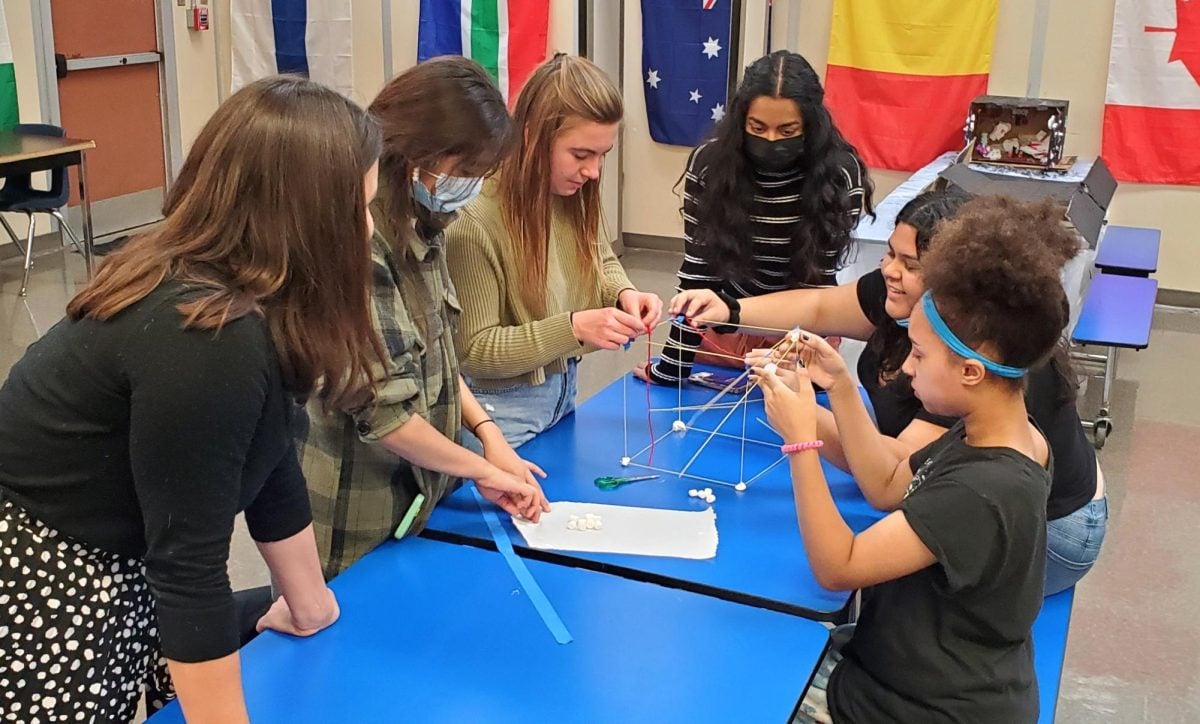The Cities Project, a nonprofit collaboration between Chicago universities and Chicago Public Schools, combines research on stress levels in youth with programs that aim to find the root issue of trauma. It also promotes healthy life choices to Chicago’s low-income youth.
Through a mentorship program, undergraduate students from Northwestern, Loyola University Chicago, University of Illinois at Chicago and DePaul University are paired with students who attend one of 12 public middle schools in Chicago.
“Where I grew up, I had a better and more accessible education compared to people who come from low income communities. Being exposed to that impacted me really deeply,” said DePaul senior and The Cities Project mentor Natalia Perez Torres. “I wanted to provide some sort of psychological help to these communities.”
At NU, the Center for Civic Engagement works with the School of Education and Social Policy to create a formal academic course on youth development and mentoring for NU students involved with The Cities Project.
Students enroll in the course during the fall and learn about topics such as urban school policy, research models, interventions and cultural competency.
They are also matched with a student from one of the three public schools that NU works with: Jordan Community Elementary School, John T. McCutcheon STEAM Elementary School and George B. Armstrong International Studies Elementary School.
Mentors and mentees can meet anywhere from one to three times per week. These sessions consist of grounding techniques, monitoring stress levels and various group activities like basketball and soccer. At the beginning and end of each session, mentees are given a survey that asks them to rate their stress and control level on a scale of one to 10. The goal of these sessions is for mentees to feel more in control of their lives and less stressed.
“It’s a good way to get out of Evanston and off of the Northwestern campus,” said SESP sophomore and The Cities Project mentor Gracey Ninmer. “I think part of your college experience should be learning how to be in community, whether you’re from the area or not, and also finding ways to get connected and be of service.”
Aside from teaching research-based strategies for managing stress, mentors also offer emotional support to their mentees.
A critical part of the mentorship program includes building a close relationship between mentors and mentees.
“We hope that they trust us enough to tell us stuff that is bothering them,” Perez Torres said.
The Cities Project was born out of research conducted by DePaul psychology Prof. Kathryn Grant.
With the help of other collaborators, Grant found that individual-based coping mechanisms were not effective for urban youth exposed to severe stress, unless the youth were supported by adults and connected with protective settings.
While The Cities Project measures how the stress levels of Chicago youth are impacted by the mentorship program, NU psychology Prof. Edith Chen is currently conducting research that centers on the benefits of the program for both mentors and mentees.
In Chen’s study, mentors are split up into either the “toolkit” group or the “mentor” group. If placed in the toolkit group, students are expected to send their mentees a digital toolkit each week containing written material on academic success, health and wellness.
The study aims to see how the data collected from the toolkit group and the mentor group differ in order to gauge the benefits of one-on-one time between mentors and mentees.
“It provides the guidance that students do need,” Perez Torres said. “I think it’s really important to sort of provide that intervention because then it halts the cycle of crime, gang violence and addiction.”
In addition to gauging stress level, mentors promote sustainable goals around sleep, exercise, eating and study habits with their mentees.
Rob Donahue, director of NU’s Center for Civic Engagement, attributed a large part of The Cities Project’s success to its focus on fostering strong relationships between mentors and mentees.
“We have students who would take a course on school policy and be like, ‘No, that’s kind of boring,’” Donahue said. “But these students are also developing relationships with a real person, who has a name and a family and a personality, and it just brings things to life.”
Email: emilevine2028@u.northwestern.edu
Related Stories:
— CPS principal discusses challenges facing school system
— NU joins forces with Apple, CPS to offer coding learning opportunities to local teachers







